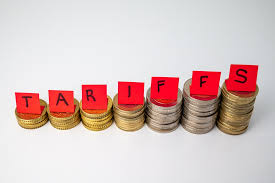
Breaking News
 How The Drug War Benefits Donald Trump And The State
How The Drug War Benefits Donald Trump And The State
 Ancient stones speak: Laodicean discovery validates biblical narrative and early Christian courage
Ancient stones speak: Laodicean discovery validates biblical narrative and early Christian courage
Top Tech News
 ORNL tackles control challenges of nuclear rocket engines
ORNL tackles control challenges of nuclear rocket engines
 Tesla Megapack Keynote LIVE - TESLA is Making Transformers !!
Tesla Megapack Keynote LIVE - TESLA is Making Transformers !!
 Methylene chloride (CH2Cl?) and acetone (C?H?O) create a powerful paint remover...
Methylene chloride (CH2Cl?) and acetone (C?H?O) create a powerful paint remover...
 Engineer Builds His Own X-Ray After Hospital Charges Him $69K
Engineer Builds His Own X-Ray After Hospital Charges Him $69K
 Researchers create 2D nanomaterials with up to nine metals for extreme conditions
Researchers create 2D nanomaterials with up to nine metals for extreme conditions
 The Evolution of Electric Motors: From Bulky to Lightweight, Efficient Powerhouses
The Evolution of Electric Motors: From Bulky to Lightweight, Efficient Powerhouses
 3D-Printing 'Glue Gun' Can Repair Bone Fractures During Surgery Filling-in the Gaps Around..
3D-Printing 'Glue Gun' Can Repair Bone Fractures During Surgery Filling-in the Gaps Around..
 Kevlar-like EV battery material dissolves after use to recycle itself
Kevlar-like EV battery material dissolves after use to recycle itself
 Laser connects plane and satellite in breakthrough air-to-space link
Laser connects plane and satellite in breakthrough air-to-space link
 Lucid Motors' World-Leading Electric Powertrain Breakdown with Emad Dlala and Eric Bach
Lucid Motors' World-Leading Electric Powertrain Breakdown with Emad Dlala and Eric Bach
Are Tariffs Good for American Workers?

He claims that because tariffs raise costs on products manufactured abroad, they will make it feasible for American firms to make these goods here. Economists who oppose tariffs argue that free trade is more "efficient" than protectionism, but what they ignore is that this alleged "efficiency" comes at the expense of American workers. We are Americans, and we should follow an "America First" policy. In this week's article, I'm going to examine Trump's case, relying on the insights of the great Austrian economists Ludwig von Mises and Murray Rothbard.
The key point to bear in mind in the whole tariff controversy is that trade is voluntary. People aren't forced to trade but will do so only if they expect to benefit from the trade. This basic principle applies internationally as well as nationally: people won't engage in trade unless they think they will get something out of it. As Rothbard says, "Before analyzing the problem of the terms of exchange, it is well to recall the reason for exchange—the fact that each individual values more highly the good he gets than the good he gives up. This fact is enough to eliminate the fallacious notion that, if Crusoe and Jackson exchange 5,000 berries for one cow, there is some sort of 'equality of value' between the cow and the 5,000 berries. Value exists in the valuing minds of individuals, and these individuals make the exchange precisely because for each of them there is an inequality of values between the cow and the berries. For Crusoe the cow is valued more than the 5,000 berries; for Jackson it is valued less. Otherwise, the exchange could not be made. Therefore, for each exchange there is a double inequality of values, rather than an equality, and hence there are no 'equal values' to be 'measured' in any way."
Because tariffs interfere with voluntary trade, they distort the market and raise costs for American consumers, who must pay higher prices for what they want. They will be buying American products instead of foreign goods, but this costs them more than they would have spent without the tariffs. Rothbard explains: "Tariffs and various forms of import quotas prohibit, partially or totally, geographical competition for various products. Domestic firms are granted a quasi-monopoly and, generally, a monopoly price. Tariffs injure the consumers within the 'protected' area, who are prevented from purchasing from more efficient competitors at a lower price. They also injure the more efficient foreign firms and the consumers of all areas, who are deprived of the advantages of geographic specialization. In a free market, the best resources will tend to be allocated to their most value-productive locations. Blocking interregional trade will force factors to obtain lower remuneration at less efficient and less value-productive tasks."

 The Cycle of War & Revolution
The Cycle of War & Revolution Anti-Assassination Drones
Anti-Assassination Drones

